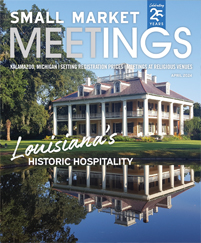Booking a speaker for the first time can be overwhelming, which is why speakers bureaus like Garrett Speakers International work hard to help planners locate the best possible candidates. Company founder Betty Garrett spoke with us about some of the most important factors to consider on the subject, drawing upon over four decades of experience in the meetings industry.
Pinpoint your main objectives.
Before anything else, planners should determine the key objectives for their meeting and consider how an ideal speaker would fit into those goals.
“Why are we having this meeting? That’s the most important question planners can ask when their boss comes to them and says, ‘We need a speaker,’” said Garrett.
Some of these considerations could involve looking at the demographic of the group, such as profession, age and gender. If it is an all-male audience, then it may not be a good idea to bring in a female speaker, and vice versa. Likewise, if the audience largely consists of baby boomers, then planners may want to be careful about booking a younger speaker who may not be able to relate to an older audience. However, these factors could change depending on the context.
Build a relationship with a speakers bureau.
Speakers bureaus are companies that act as a liaison between event planners and professional speakers, often working within a carefully selected database of speakers. Some bureaus even work with planners beyond the booking process, helping them negotiate travel arrangements, ground transportation, book sales and more.
“If I were someone new to this, I would develop a relationship with a speakers bureau because you have 57,000 so-called speakers out on the market,” said Garrett. “It’s a glut, so how can you find a good resource without knowing who’s good and who isn’t? Bureaus can save you time, money and energy and provide protection with insurance in case anything should happen at the last minute.”
Some planners might be wary about working with a speakers bureau because of misconceptions about the cost. But speakers bureaus basically act as agents of the speakers they represent, and the speakers pay them a percentage of their fee. For meeting planners, the speakers bureau acts as a complimentary resource.
If bad weather or some other mishap prevents the speaker from reaching the event, speakers bureaus can step in at a moment’s notice with a backup plan. Planners that choose to work directly with speakers would have to scramble to work out those logistics on their own.
“If you’re a planner, you don’t have time to worry about things like that,” said Garrett. “But when you go to a bureau, we do the magic and make you look like a hero.”
Unless stated otherwise in their contract, planners are welcome to work with more than one speakers bureau at once, but it is advisable to build a consistent working relationship with one reputable company.
“You may have a small budget right now, but next year your budget might be bigger, so go to the resources that know the business and let them help you as much as they can along the way,” said Garrett.
Get to know your speaker.
If planners do choose to work directly with a speaker, the first thing they should do is ask for three references and call them.
“There are three things that I ask: If Joe Blow has been to your meeting, what was his strength? What was his weakness, and was he able to relate to the audience? And — probably the most important question — would you be willing to hire this speaker again?” said Garrett. “If there’s any hesitancy, then you know there were problems.”
Planners should also schedule a phone conversation with the speaker to hash out any final considerations. If necessary, they can include this stipulation in the contract.
“Make sure that you have a conference call to meet with that speaker and powers that be at least three weeks out before the event,” said Garrett. “I always try to get planners to have a call before the decision is made, and for some reason, they usually want to wait until after the contract is signed. Big mistake. If the chemistry is not there between you and the speaker, then it’s not going to work.”
During this conversation, planners should outline the event objectives and demographics, and then find out how the speaker plans to customize the speech to meet those needs. Any questions or concerns should be laid out on the table so there is no confusion about the planner’s expectations and goals.
“Don’t assume that the speaker can read your mind,” said Garrett. “You have to guide and educate so that they can do the very best for you.”
Read the fine print.
When it comes to booking speakers, one of the biggest mistakes that new or inexperienced planners make is overlooking crucial details in the contract, which acts as a planner’s fail-safe against potential mishaps or misunderstandings. Every “What if?” question should be factored into the contract.
For example, it is always prudent to have the speaker arrive at the host destination the night before the speech in case of weather delays, equipment malfunctions and other setbacks.
“If they refuse to come in the night before, go find someone else because there’s too many things that could happen,” said Garrett. “I would put that in the contract so that there’s no room for discussion.”
The contract is also an opportunity to outline everything a planner expects from the speaker, whether it is a meet-and-greet after the meeting or attending a VIP reception before the event. For further protection, many planners have begun incorporating morality clauses into contracts in case of any unsavory behavior.
“If you hire a speakerand the speaker was later filmed on TV using profanity or participating in a riot, it would be an embarrassment to have that speaker as a keynote speaker,” said Garrett. “The morality clause gives you an out.”
Another item planners may want to include in the contract is a flat travel fee, which removes the possibility of any unexpected costs.
“It used to be in thepast you had a speaker fee plus expenses,” said Garrett. “So unless you put in the contract that they don’t fly first-class, then guess what: You’ve got to pay for a first-class ticket.”
With a flat travel fee, planners can know in advance how much they have to budget for travel in addition to accommodations, ground transportation and food.











